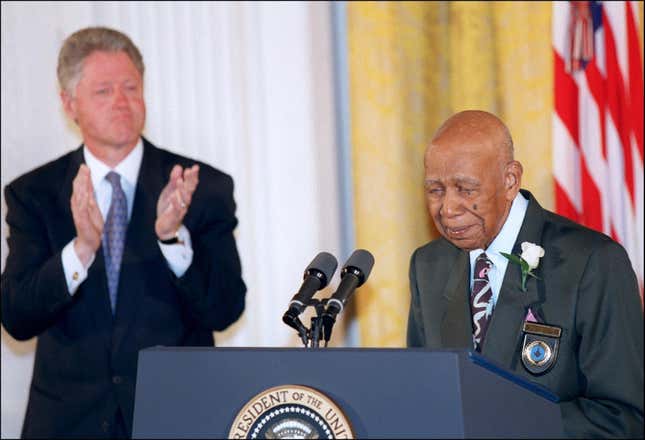
The Tuskegee Syphilis Study was an unethical medical experiment the United States government performed on Black men that would have terrible consequences and leave a deep distrust in Black community of the healthcare system that still exists today. Forty years after the study began, a young Associated Press reporter broke the news and ultimately led to its dissolution. Now 50 years after that story broke, that reporter spoke with the AP about what she went through to get the word out.
Associated Press reporter Jean Heller was covering the 1972 Democratic National Convention when she first learned about “The Tuskegee Study of Untreated Syphilis in the Negro Male,” otherwise known as “The Tuskegee Syphilis Study.” She got the information from Edith Lederer, a colleague she’d worked with at the AP’s New York City headquarters. Lederer shared the tip with Heller, the only woman on the AP’s Special Assignment Team and the only woman she thought would be able to get the story out at the time.
Heller’s reporting revealed that in 1932, the Public Health Service began working with Tuskegee Institute to recruit Black men for a health study. The men were told they were being treated for ‘bad blood,” a term which could have described anemia and syphilis along with other conditions. In exchange for free exams, meals and burial insurance, participants agreed to allow the government to perform an autopsy upon their death. The callout recruited 600 men to participate in the study, 399 of whom had syphilis at the time. But during the study, a segment of the participants would not receive any treatment for their ailments, even after doctors began treating infections with penicillin in the 1940s. The study continued for 40 years until it was eventually discontinued months after Heller’s story ran on July 25, 1972. In 1997, then-President Bill Clinton issued a formal apology for the study.
Looking back, Heller says she’s shocked and angry that the government would knowingly perform a dangerous experiment on Black people for such a long period of time. “As much injustice as there was for Black Americans back in 1932, when the study began, I could not BELIEVE that an agency of the federal government, as much of a mistake as it was initially, could let this continue for 40 years,” she said. “It just made me furious.”
Although Heller received several awards for her reporting, she eventually left the AP in 1974. “I felt after all of the brouhaha over ... Tuskegee, and what came after it, that I should move on,” she said. Today, Heller has traded in her hard news hat for fiction writing.

